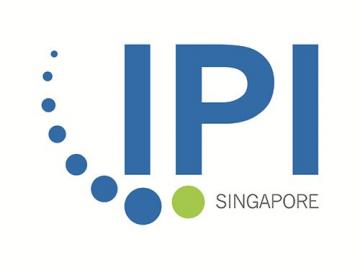News & Updates
Matex News

Going green and growing sustainably
Find out how this Singapore-based company used an open innovation strategy to cope with tectonic shifts in the global chemicals industry.
While pigments and dyes add colour to our world, not all of them are environmentally friendly. Should these chemicals leach into streams and lakes untreated, for example, they may cause harm to the organisms that reside in or drink from those water bodies.
Recognising the need for cleaner and eco-friendlier compounds, Dr Alex Tan founded Matex in 1989 to develop next-generation colour technologies and specialty chemicals that leave smaller environmental footprints. Embracing open innovation from the start, the Singapore-based company quickly built a pipeline of unique and sustainable products.
Dro Tan, current director of Matex, shared with IPI how the company continues to work closely with partners to drive innovation and remain competitive, keeping ‘green’ as a central theme for future growth.
1. What is the core competency of your company?
Matex is a leading global integrated service provider in clean colour science technologies and specialty materials. We place great emphasis on the eco-friendliness of our range of products and services.
For example, our latest innovation, the Megapro ECO method, allows cotton to be dyed without the use of salt additions, which means that exhaust water from the cellulose dyeing process is cleaner.
We are committed to developing new product solutions, applications, process technologies and services for our clients, keeping sustainability and cost efficiency in mind.
2. Was there a turning point in your company's history that convinced you that open innovation was the right way to grow?
Open innovation has been a key pillar of the company since its inception 30 years ago by Dr Alex Tan—it is part of our corporate DNA. Alex was formerly with a multinational company for 20 years, and there he witnessed the benefits of open innovation: quick growth, the ability to overcome challenges collaboratively, fast acquisition of knowledge and rapid entry into new application areas. Open innovation also promotes a global mindset and corporate culture.
Perhaps the value of open innovation was most sharply felt when the business environment in which Matex operated underwent changes over the years. The safety and environmental impact of the chemicals industry became matters of concern in Europe and spread to the rest of the world. The global chemicals industry then began to shift from Europe to Asia, and China started to open its market.
With all these in play, a single start-up from Singapore would not have been able to survive on its own had it not engaged in open innovation. Working with our partners, we can take bold steps to realise our vision to be an Asian world leader in our industry.
3. How has open innovation benefitted your company so far?
We believe that to have a sustainable future, it is imperative to be innovative. Our driving force to be one of the world’s most innovative enterprises in the clean colour science segment propels us to constantly confront dynamic challenges together with our global network of partners and suppliers.
Hence, technology management at Matex is explicitly oriented towards the requirements of our customers and markets, including the early technical and economical understanding of forward-looking technologies and future markets across the whole value-creation chain. This approach secures long-term growth, competitiveness and forward-looking capabilities for us and our customers. We also bear in mind that successful partnerships require a respect for diversity, the environment and sustainability, and we actively seek those values in those we work with.
Matex and IPI go back a long way. Our founder Alex was invited to chair IPI’s industry advisory panel from 2014 to 2016, and has been serving as a member of IPI’s steering committee since 2016. We continue to keep in close contact with IPI for suitable projects with open-minded inventors looking to commercialise and leverage Matex’s technology platform. Because of IPI’s deep understanding of Matex’s needs, coupled with its powerful search and filter services that led to useful introductions, Matex now has two projects in the development stage: one involving wastewater membrane treatment and the other specialty chemicals for green textile processing solutions.
4. How do you encourage a culture of open innovation in your company?
We have our own framework that forms a key corporate initiative and guideline to strengthen Matex’s innovation capabilities. Broadly, we have an ‘explore + assess purpose’ phase where we engage with industry fora, market experts, potential research units and so on.
Once a strategic fit has been identified, we move on to a ‘seed’ phase where we explore potential growth areas and emerging technologies together. Finally comes the ‘commercialisation’ phase where we move into the growth areas and enhance the technology to fulfil an unmet need.
The system provides innovation process blueprints and tools, builds capabilities and fosters an innovation culture to translate knowledge into viable commercial solutions better and faster.
5. What are some lessons that you have learnt in the process of engaging in open innovation?
We have learned that persistence is important, but it is also crucial to put yourself in the shoes of the inventor and try to align what is to be gained. Naturally, not all open innovation efforts are successful and we have lost out before, so another lesson is to avoid putting all your eggs in one basket.
Also, beware of the competition, which is relentless. Don’t get too complacent in your comfort zone thinking you have the best products or solutions—very quickly the weather out there can change and turn ugly and stormy. Be prepared for long negotiations, but be prepared to walk away if a project exceeds an allocated budget. Of course, this means that one must do one’s homework, studying the market to see how much value and resources can be accorded to a project.
Source: https://www.ipi-singapore.org/innovation-insights/igniting-innovation-%E2%80%94-dro-tan-matex






